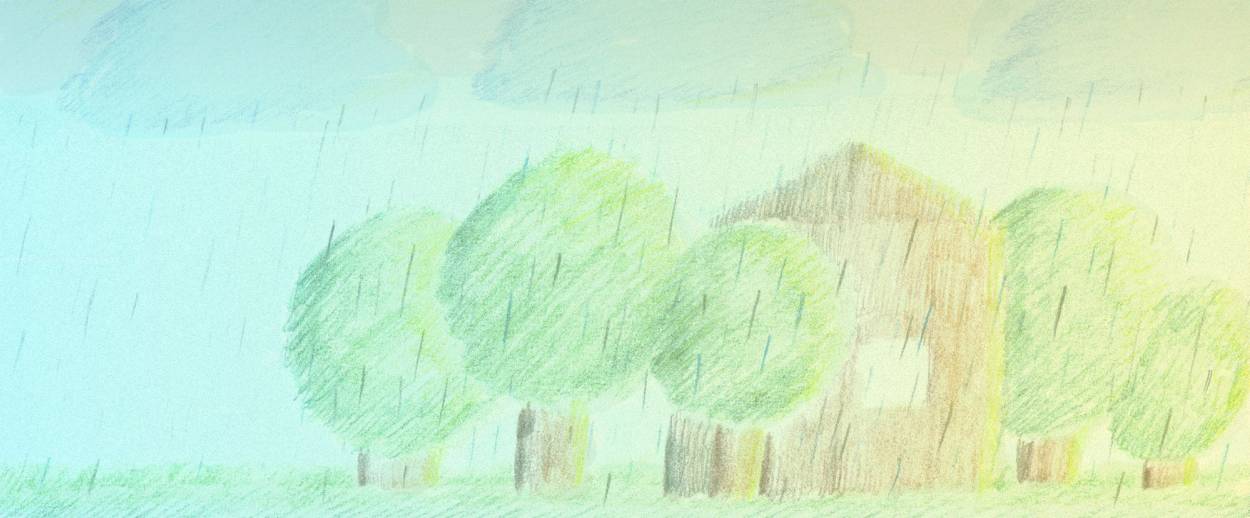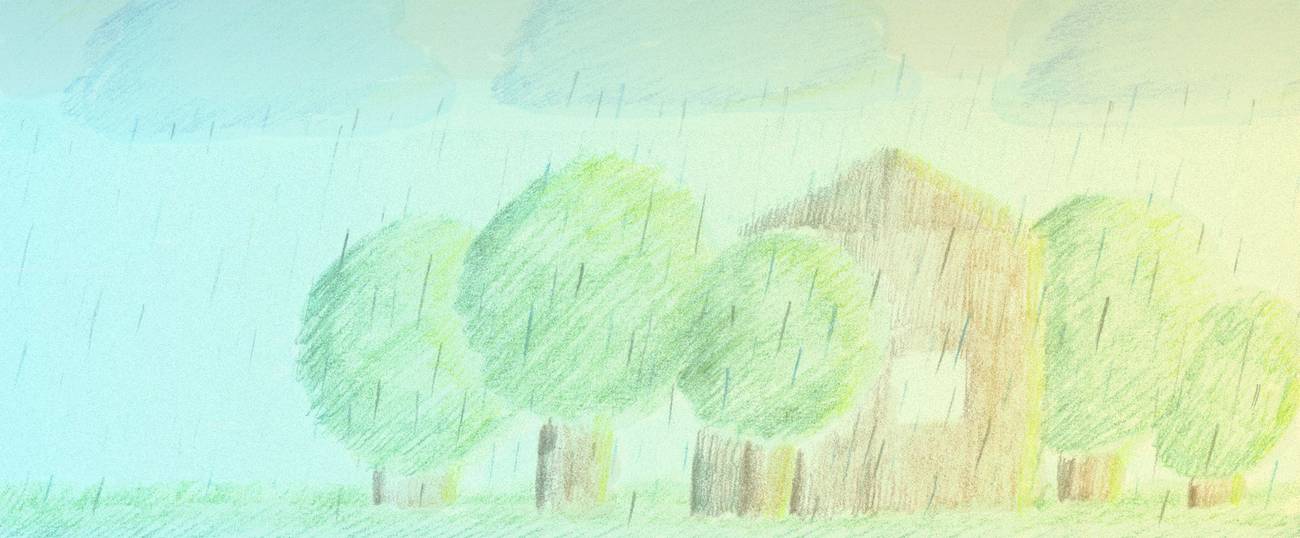When Shabbes Is the Longest Day
If I wanted my daughter to learn to love the Sabbath, I had to bend my own rules just a little




It was a long July shabbes some years ago. If you grew up observant, you remember how long this kind of shabbes seemed when you were a child—endless, like summer itself. A long July shabbes is enough to turn even a devout child into a young apostate, enough to make you deny Moses and all of God’s Torah.
Out of kindness to our little children—and ourselves—we had decided to leave our Brooklyn home and go to a place where the Sabbath could pass more quickly, less painfully, and more interestingly to a child: Ocean Grove on the Jersey Shore. We would stay at a bed-and-breakfast (although we’d bring our own food). There was a shul within walking distance, but there were also beachside playgrounds nearby, where our kids could enjoy their long shabbes afternoon.
Ocean Grove was originally founded as a camp meeting site by Methodist Evangelicals, and it has retained some of that culture even as it became a destination for all kinds of people. We had never spent shabbes in such an environment before. As the sun set on Friday evening, there was a festive air. People gathered on the veranda of our guesthouse to eat dinner. I noticed a round, red-faced man eating lobster nearby as I quietly sang Shalom Aleichem. Just inside the parlor a short man played the piano: ragtime and Gershwin’s Rhapsody in Blue. We made Kiddush with a small silver becher that we brought along, while he played piano in the background. I rather enjoyed it. There was something homey, quaint about this place, yoking these opposites together in a sort of spiritual plaid.
We got up, snooded wife and yarmulke-ed little kids, and trekked across the porch and the parlor to wash our hands. Some people watched us and our young family; most ignored us. As the pianist continued to play An American in Paris and Porgy and Bess, there was a noisy giddiness in the room and some people started to dance. After a while, the last tune was played on the piano and the place emptied out. It was a beautiful evening and we decided to go for a walk. As were stepping down from the porch, the pianist passed us, about to get into a waiting cab. “Gut Shabbes,” he said.
My mother had a terrible fear of “the streets”—a catch-all term for the outside world, rife with lusts and formless enemies that would snare her children. For her there was no neutral ground for cultures to meet, no safe place for mingling of ideologies. She was completely under the sway of the Eastern European mistrust of the goyishe culture as being wholly corrupting. One could read a book or listen to “gentile” music, but the lure of “their” culture up close—like sitting and eating with goyim in Ocean Grove—would be too much. We would all succumb in the end, she believed, if we allowed ourselves to be too close.
The degree to which I internalized this consciousness was tested the very next day when we were awakened by sheets of rain and massive lightning and thunder. Despite the deluge, I made it to shul in nearby Bradley Beach and returned to the inn at midday when there was a short break, but from the sky I knew that there was no hope for the day. We would all be confined indoors. A feeling of panic crept up in me. It was going to be a long, intolerably long, afternoon—exactly what we’d hoped to escape by spending shabbes at the beach. I was particularly worried about my then 6-year-old daughter Avigayil, who had already been forcefully agitating for a kinder, gentler shabbes that would end, say, around 3 o’clock in the afternoon. She’d wanted on several occasions to paint and color on the Sabbath. So, it was with good reason that I feared that the “torture” of one more endless, boring shabbes could spoil her for receiving the faith of her forebears and render her, instead, ripe for a lifetime of reactionary hedonism.
My wife suggested that we delay eating the afternoon meal until 1 o’clock, drag it out for an hour or so, and go upstairs back to our room, where the heavy rain would lull everyone into a deep Sabbath afternoon sleep. But it was not to be. At around 2:45 Avigayil woke up from a short nap and nudged me awake. I looked at the clock: six more hours till shabbes was over. The others were still asleep. It was pouring outside. I had no idea what to do. We would go downstairs to the lobby. Perhaps there were some board games there we could play. There were people playing card games and checkers, but I didn’t think she would have the patience to learn. Suddenly, someone put on the television. A movie was starting—from the beginning: Stuart Little. I sat down in direct sight of the television. “But daddy, it’s shabbes,” my daughter said. I put a finger over my lips: “Shhh.” Avigayil first sat in my lap, and then we sat together on the floor.
For those unfamiliar, Stuart Little is a family movie about a flawless, turn-of-the-20th-century white Manhattan couple who adopt a younger brother for their son George. At the orphanage, they meet and fall in love with a mouse named Stuart who is part human, part rodent. They adopt Stuart and take him home but don’t live happily ever after, at least not yet. It’s about familial love, lost and found with sharp, intermittent, but manageable bouts of heartbreak followed by some heroics and derring-do in a boat race followed by misdeed, guilt, atonement, and redemption. In short, it was a perfectly satisfying kid-movie, the equivalent of a thick hamburger and french fries and soda.
We watched a movie on shabbes. This wasn’t technically forbidden, since we had not turned on the television, but nevertheless, I had never done that before. I had in my bone marrow passed down from the Old World that Yiddishkeit had to be accepted with an austerity, even a form of monasticism. Yet I knew what “worked” for me would not “work” for my daughter. I knew I would lose her, even at this young age, if I did not do something, if I did not bend somehow, to make this shabbes tolerable. She needed me to exceed my boundaries, if only so that she could accept hers.
By the time the movie ended, the bulk of the day had passed, but more than that, we had felt cleansed somehow as we snacked happily on slices of watermelon. Everyone else in the family had slept through the afternoon, but she and I had watched a movie. We both knew in our Jewish souls that something pure had been accomplished with this “sin” in this church-town of Ocean Grove. I had the feeling that all the polemics in the world could not have instilled greater love of shabbes than this conspiracy and the successful transgression we engaged in together.
As the day drew to a close, the rain finally abated. We went out to the patch of lawn, the commons in front of the chapel, and under a turquoise sky, fast turning purple velvet, we counted out three stars for the Sabbath’s end.
In all the years since I never heard a complaint about shabbes again.
Alter Yisrael Shimon Feuerman, a psychotherapist in New Jersey, is director of The New Center for Advanced Psychotherapy Studies. He is also author of the Yiddish novel Yankel and Leah.